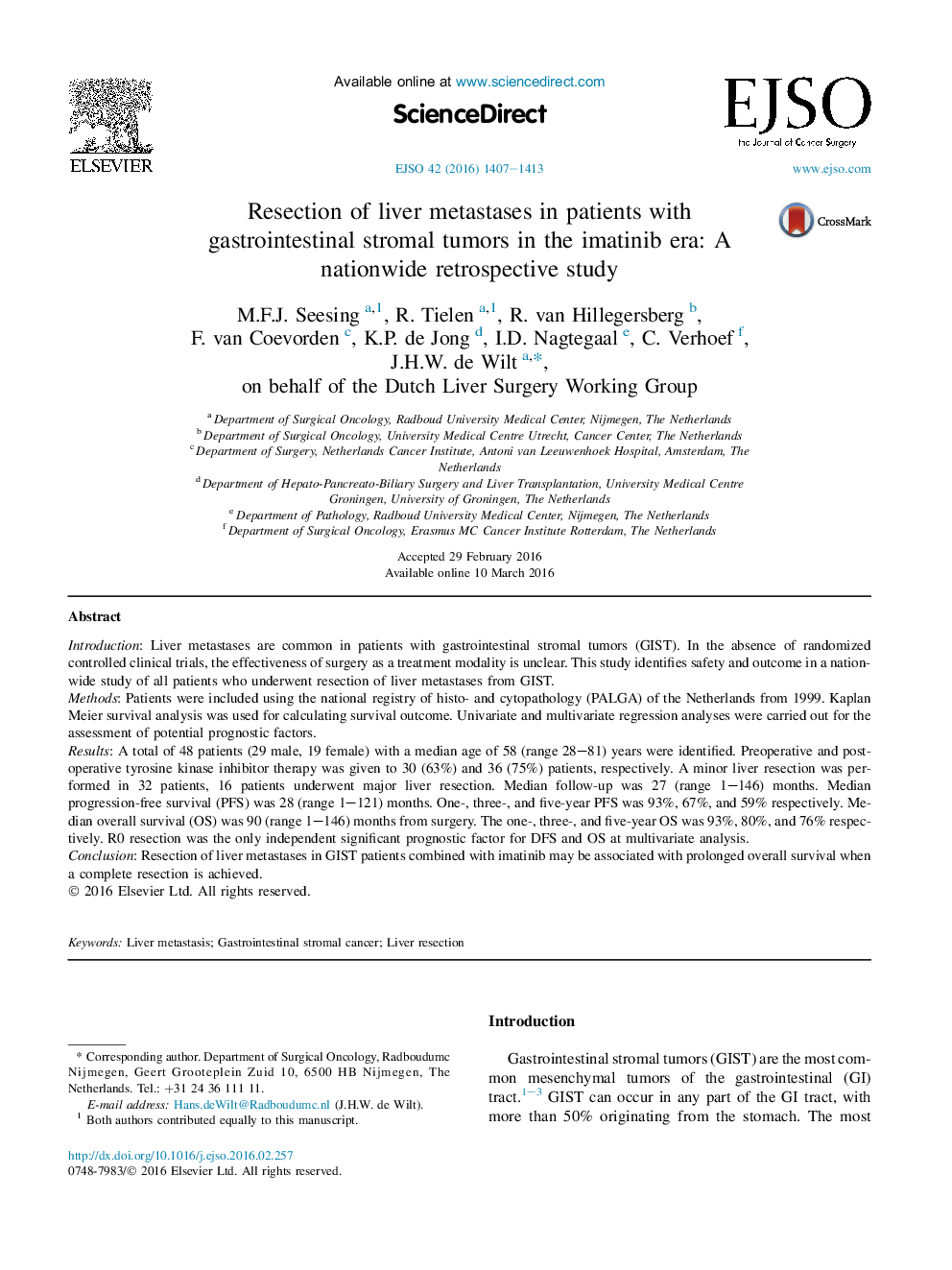| Article ID | Journal | Published Year | Pages | File Type |
|---|---|---|---|---|
| 3984448 | European Journal of Surgical Oncology (EJSO) | 2016 | 7 Pages |
IntroductionLiver metastases are common in patients with gastrointestinal stromal tumors (GIST). In the absence of randomized controlled clinical trials, the effectiveness of surgery as a treatment modality is unclear. This study identifies safety and outcome in a nationwide study of all patients who underwent resection of liver metastases from GIST.MethodsPatients were included using the national registry of histo- and cytopathology (PALGA) of the Netherlands from 1999. Kaplan Meier survival analysis was used for calculating survival outcome. Univariate and multivariate regression analyses were carried out for the assessment of potential prognostic factors.ResultsA total of 48 patients (29 male, 19 female) with a median age of 58 (range 28–81) years were identified. Preoperative and postoperative tyrosine kinase inhibitor therapy was given to 30 (63%) and 36 (75%) patients, respectively. A minor liver resection was performed in 32 patients, 16 patients underwent major liver resection. Median follow-up was 27 (range 1–146) months. Median progression-free survival (PFS) was 28 (range 1–121) months. One-, three-, and five-year PFS was 93%, 67%, and 59% respectively. Median overall survival (OS) was 90 (range 1–146) months from surgery. The one-, three-, and five-year OS was 93%, 80%, and 76% respectively. R0 resection was the only independent significant prognostic factor for DFS and OS at multivariate analysis.ConclusionResection of liver metastases in GIST patients combined with imatinib may be associated with prolonged overall survival when a complete resection is achieved.
